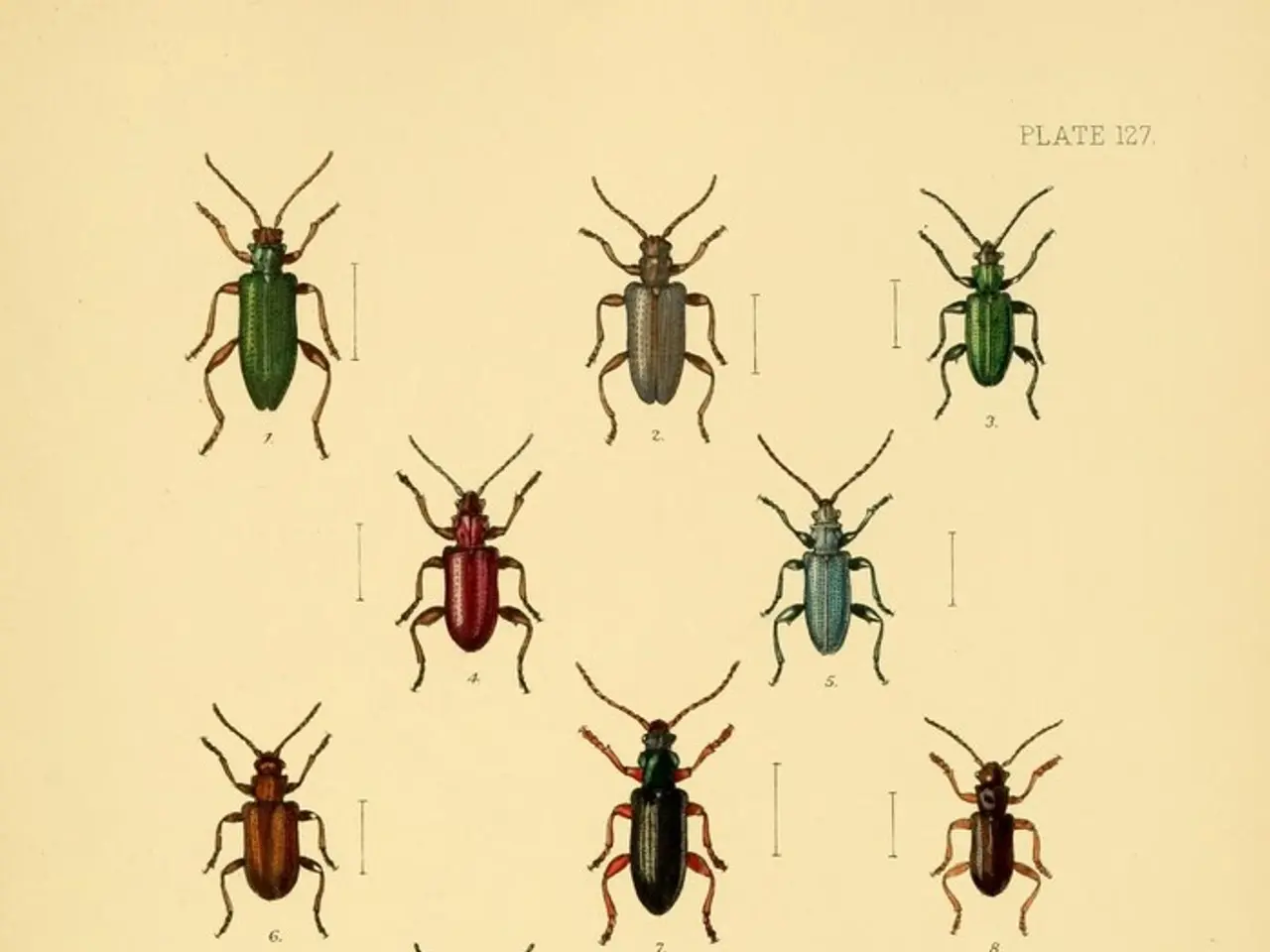Warning Issued for Japanese Beetles in Groß-Gerau District
In the picturesque district of Groß-Gerau, a new challenge has arisen for the local community and authorities. Japanese beetles, originally from Asia, have been discovered in the municipality of Trebur, prompting immediate action.
To prevent the further spread of these destructive insects, an action plan has been devised by the government presidency of Gießen. The plan involves the establishment of an infestation zone and a buffer zone, extending up to six kilometers and encompassing several towns, including Rüsselsheim, Nauheim, Ginsheim-Gustavsburg, Nackenheim, and western parts of Groß-Gerau.
The infestation zone, with a radius of approximately one kilometer, is centred around the locations found in Trebur. Businesses within this zone are obliged to regularly inspect their surroundings for any signs of Japanese beetles. Documentation is required for these inspections, and any found beetles must be immediately reported to the Plant Protection Service.
The buffer zone serves as a protective barrier, ensuring that any potential spread of the beetles is contained. Measures to combat Japanese beetles in Trebur were enacted by the Regierungspräsidium Gießen, which confirmed several captures and issued a general decree with an action plan for containment.
Pheromone traps have been set up to catch the Japanese beetles in both the infestation and buffer zones. These traps work by attracting the beetles and preventing them from escaping once inside. Experts use these traps to locate Japanese beetles and monitor their spreading within the zones.
To further prevent the spread of the beetles, a watering ban has been enforced in the infestation zone from June to the end of September. This ban aims to prevent beetle egg-laying, as the beetles require moisture to lay their eggs.
Crops must also be checked for potential infestation before transport. Plants leaving the affected area must be securely packaged under certain conditions and may only do so if officially certified as free of Japanese beetles.
Vehicles and agricultural equipment must also be regularly cleaned to prevent the spread of Japanese beetles. This is a crucial step in the containment efforts, as vehicles and equipment can unknowingly transport the beetles to new locations.
The Japanese beetles, which are slightly smaller than a one-cent coin, can cause significant damage to agriculture, particularly affecting grapevines, corn plants, and fruit trees. The impact of these beetles on the local agriculture is a concern for farmers and authorities alike, making the action plan a necessary step in preserving the region's crops and economy.
The measures to combat the Japanese beetle infestation in Gießen are similar to those taken for the African swine fever in southern Hesse since 2024. This demonstrates the seriousness of the situation and the commitment of the authorities to protecting the region from harmful pests and diseases.
As the situation continues to develop, the authorities will monitor the effectiveness of the action plan and adjust it as necessary to ensure the containment of the Japanese beetle infestation in Gießen.
Read also:
- Understanding Hemorrhagic Gastroenteritis: Key Facts
- Stopping Osteoporosis Treatment: Timeline Considerations
- Tobacco industry's suggested changes on a legislative modification are disregarded by health journalists
- Expanded Community Health Involvement by CK Birla Hospitals, Jaipur, Maintained Through Consistent Outreach Programs Across Rajasthan








